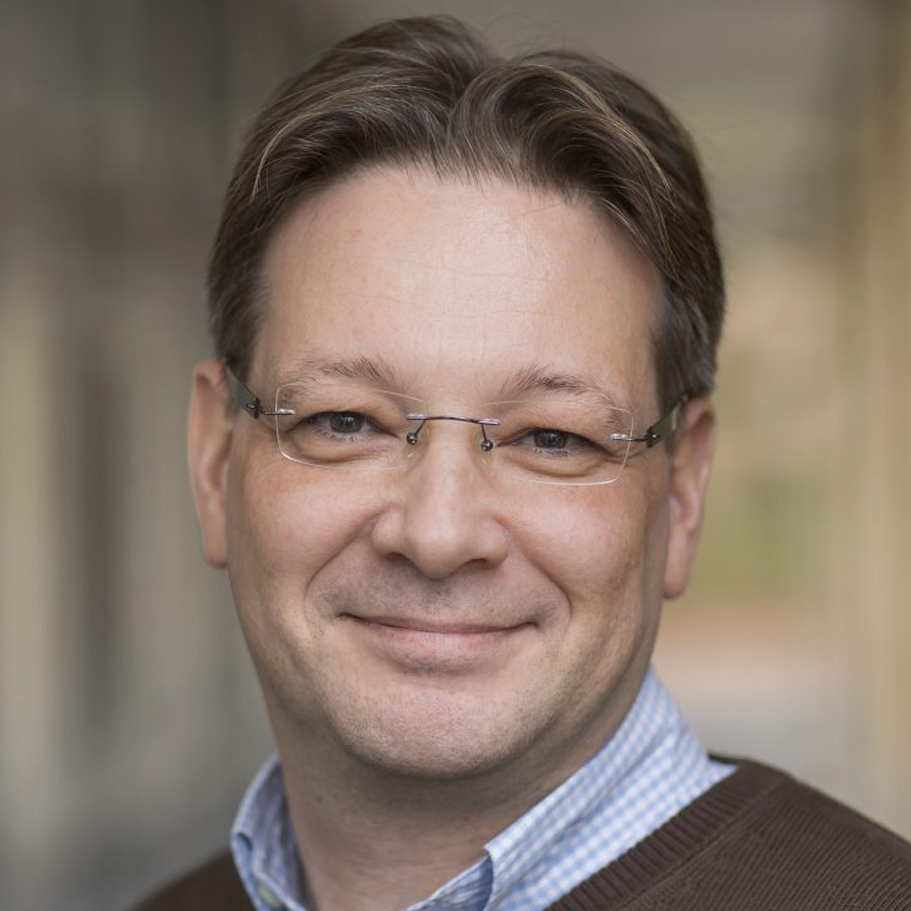About us
In order for research data to be found and reused efficiently, it must be described with metadata. The section supports the NFDI consortium’s processes for developing and establishing shared data and metadata standards as a basis for the effective reuse of FAIR research data. In order to be able to link data from different sources in an interdisciplinary manner, semantic technologies (ontologies, knowledge graphs) are to be integrated into the NFDI, enabling a machine-readable representation of knowledge.
In the area of metadata and research data, the section deals with issues relating to (meta)data harmonization, data discoverability, general data and metadata standards with a view to a possible NFDI core metadata format, as well as format conversions, provenance, and persistent identifier systems.
In the area of terminology, the section deals with cross-community and cross-disciplinary definitions and curation of ontologies and mappings, as well as best practices for modeling terminologies, vocabularies, and ontologies, and services for data integration based on them.
The section collaborates with the “Common Infrastructures” and “Ethical, Social and Legal Aspects” sections, particularly on the topics of terminology and provenance.
Goals
The section distinguishes between structural and technical goals, which are underpinned by measurable success criteria. The structural goals focus on promoting cooperation between the NFDI consortia and their representatives in the section, while the technical goals (see below) focus on the desired outcomes in the section’s three areas of activity
- Harmonization of ontology development and curation in the NFDI / mapping of ontologies
- Concepts and recommendations for the harmonization of (meta)data and terminology services for the NFDI and beyond
- Definition of cross-disciplinary minimum information standards / metadata for the scientific disciplines represented by the NFDI
- Starting points for the technical integration and validation of basic services in the areas of (meta)data, terminologies, and provenance
- Exploiting synergies in the development of domain-independent metadata standards and use of infrastructure
- Overview and evaluation of existing approaches and (emerging) best practices, harmonization of interfaces
- Development of concepts for annotating metadata elements with concepts from terminologies.
- Exchange and coordination with EOSC Technical and Semantic Interoperability Task Force
Working Groups
Schalter (ausgeblendet)
Schalter, damit darauffolgendes Element ausklappbar ist.
Terminology Services
Terminologies are at the heart of FAIR metadata for research data management (RDM). Terminologies have various characteristics: they describe domain knowledge (e.g., chemistry, biology, and information science use their own terminologies) and they constantly evolve over time and must be accepted and coordinated (mapped) within their knowledge domain and beyond. The overarching goal of the Terminology Services working group is to drive joint developments, share best practices, and reduce barriers to the use of terminologies.
Contact persons: Roman Baum, Naouel Karam
Link to Charta: https://doi.org/10.5281/zenodo.6759325
Publications:
Baum, R., & Koepler, O. (2023). Leveraging Terminology Services for FAIR Semantic Data Integration Across NFDI Domains: How to Integrate Terminology Services Into Other Service Applications. Proceedings of the Conference on Research Data Infrastructure , 1. https://doi.org/10.52825/cordi.v1i.356
Anders, I., Bailly, K., Baum, R., Engel, F., Ernst, F., Ghiringhelli, L. M., Kailus, A., Karam, N., Kett, J., Kraus, F., Löbe, M., Moeller, K., Patil, A., Rossenova, L., Voß, J., Weiland, C., & Özaslan, M. (2022). Terminology Services – Working Group Charter (NFDI section-metadata) (1.0). Zenodo. https://doi.org/10.5281/zenodo.6759325
Koepler, O., Sasse, J., Karam, N., & Baum, R. (2024). Terminology Services 4 NFDI (TS4NFDI) – Initialisation Phase Proposal. Zenodo. https://doi.org/10.5281/zenodo.12188787
Baum, R., Bailly, K., Bouazzouni, S., Fillies, J., Karam, N., Mühlhaus, T., Posthumus, E., Oladazimi, P., Sasse, J., Voß, J., & Koepler, O. (2024). Terminology Services 4 NFDI (TS4NFDI) – Integration Phase Proposal. Zenodo. https://doi.org/10.5281/zenodo.13921325
Ontology Harmonization and Mapping
The consistent use of terminology and the organization of terms in structured ontologies are necessary prerequisites for FAIR data, especially for its reuse by other scientific communities and executability by machines. Each field of research contributes its own terminology that reflects its specific needs. This will result in conceptual overlaps and, as in natural language, more than one way of expressing facts. Harmonization aims to develop a common terminology, while mapping involves agreeing on a clearly defined mapping as an interface between terminologies that remain separate. The working group will coordinate this work, which is essential for linking research data.
Contact person: Philip Strömert
Link to Charta: https://doi.org/10.5281/zenodo.6726518
GitHub: GitHub repository (The WG organizes itself and its work via Github: https://github.com/nfdi-de/section-metadata-wg-onto)
Search and Harvesting
This working group focuses on how (meta)data can be extracted, found, and used, both for the discovery and use of data by researchers (search/discovery) and for aggregation and indexing by search services (harvesting). In both cases—search and harvesting—the actors can be humans or machines.
Contact persons: Brigitte Mathiak, Heinrich Widmann
Link to Charta: https://doi.org/10.5281/zenodo.6770762
Publications:
Brigitte Mathiak, Heinrich Widmann, Luca Ghiringhelli, Holger Israel, Fidan Limani, Christin Henzen, & Gerhard Heyer. (2022).
Working Group Charter – Search and Harvesting. Zenodo. https://doi.org/10.5281/zenodo.6770763
Mathiak, B., Widmann, H., Heyer, G., Henzen, C., & Czerniak, A. (2023). Search and Harvesting across NFDI Consortia – Gaps and Challenges. Zenodo. https://doi.org/10.5281/zenodo.8426850
Mathiak, B., Heyer, G., Widmann, H. et al. Search and Harvesting across NFDI Consortia – Gaps and Challenges. Datenbank Spektrum 24, 77–84 (2024). https://doi.org/10.1007/s13222-024-00480-7
Knowledge Graphs
Knowledge graphs are a key technology for implementing FAIR principles in data infrastructures and ensuring data interoperability both in automated data flows and for end users. The activities of the Knowledge Graphs working group aim to promote the use of knowledge graphs in NFDI consortia, to integrate distributed data across domains in accordance with the FAIR principles, and to contribute to the joint development of tools and technologies that enable the transformation of data into semantically usable knowledge across different knowledge domains.
Contact persons: Renat Shigapov, Lozana Rossenova, Moritz Schubotz
Link to Charta: https://doi.org/10.5281/zenodo.7228955
Publications:
Shigapov, R., Schubotz, M., Fliegl, H., Norouzi, E., Fortmann-Grote, C., Becker, M., Rossenova, L., Tietz, T., Posthumus, E., Zapilko, B., Dietze, S., Gesese, G.-A., Degbelo, A., Grieb, J., Rebecca Ondraszek, S., Voss, J., Thiery, F., W. Mees, A., Goedicke, M., … Limani, F. (2025). Knowledge Graph Functions in NFDI (1.1) [Data set]. Zenodo. https://doi.org/10.5281/zenodo.15224731
Rossenova, L., Schubotz, M., & Shigapov, R. (2023, September 14). The case for a common, reusable Knowledge Graph Infrastructure for NFDI. Conference on Research Data Infrastructure (CoRDI 2023), Karlsruhe, Germany. Zenodo. https://doi.org/10.5281/zenodo.8342570
Limani, F., Shigapov, R., Degbelo, A., Schimmler, S., Zapilko, B., Rossenova, L., Dietze, S., Förstner, K. U., Karmakar, S., & Czerniak, A. (2023). Who is using Knowledge Graphs in NFDI? An overview by the Working Group “Knowledge Graphs”. Zenodo. https://doi.org/10.5281/zenodo.8332776
Shigapov, R., Limani, F., Degbelo, A., Schimmler, S., Zapilko, B., Rossenova, L., Dietze, S., Förstner, K. U., Karmakar, S., & Czerniak, A. (2023). Dataset: an overview of knowledge graphs in NFDI (1.0) [Data set]. Zenodo. https://doi.org/10.5281/zenodo.8124286
Stocker, M., Rossenova, L., Shigapov, R., Betancort, N., Dietze, S., Murphy, B., Bölling, C., Schubotz, M., & Koepler, O. (2023). Knowledge Graphs – Working Group Charter (NFDI section-metadata) (1.2). Zenodo. https://doi.org/10.5281/zenodo.7802304
Research Software Metadata
Research software is used for research in many areas of science and is itself sometimes the subject of research. Many NFDI consortia cover research software as an important research artifact and want research software to meet the FAIR criteria in the future in order to increase transparency, reproducibility, and reusability in software-based research. In order for research software to meet the FAIR criteria, it must be described with meaningful and interoperable metadata. This requires appropriate metadata schemas. Although there are some metadata schemas for research software, such as CodeMeta, they have some limitations, such as missing elements and a lack of semantic interoperability. To address these issues, this working group has set itself the goal of providing a comprehensive metadata vocabulary for research software that is compatible with existing standards such as schema.org and CodeMeta. The working group will thus support all NFDI consortia in the application and establishment of metadata schemas for research software, e.g., in the development of domain-specific extensions.
Contact persons: Stephan Ferenz, Leyla Jael Castro
Link to Charta: https://doi.org/10.5281/zenodo.10246218
Publications:
Results on a Survey on Research Software Metadata in the NFDI Consortia
Task Force Metadata
The Task Force Metadata consists of metadata enthusiasts from various disciplines within the NFDI. It deals with the key topic of metadata standards and metadata harmonization and is dedicated to defining recommendations for comprehensive NFDI metadata standards. Through its work, the task force is committed to the goals set out in §1d of the Federal-State Agreement and the NFDI Strategy 2025/2026. The TF Metadata aims to promote the use and adoption of existing and developed (interdisciplinary) terminologies and metadata schemas in order to increase interoperability between the consortia and meet the requirements specified in the BLV objective, taking into account the formal obligation of the NFDI association statutes in this regard.
Contact persons: Oliver Koepler, Christin Henzen, Thorsten Trippel, Heike Fliegl
Link to Charta: https://www.nfdi.de/section-metadata/task-force-metadata/
Publications:
First NFDI Metadata Workshop (14-15.01.2025, Dresden): Report of the 1st NFDI Workshop published on Zenodo 10.5281/zenodo.1522723
Second NFDI Metadata Workshop (25-27.06.2025, Hannover): Building Bridges through Metadata within the NFDI

Speaker: Dr. Oliver Koepler
(TIB – Leibniz Information Centre for Science and Technology University Library)

Deputy Speaker: Dr. Leyla Jael Castro
(Deutsche Zentralbibliothek für Medizin (ZB MED) – Informationszentrum Lebenswissenschaften)
